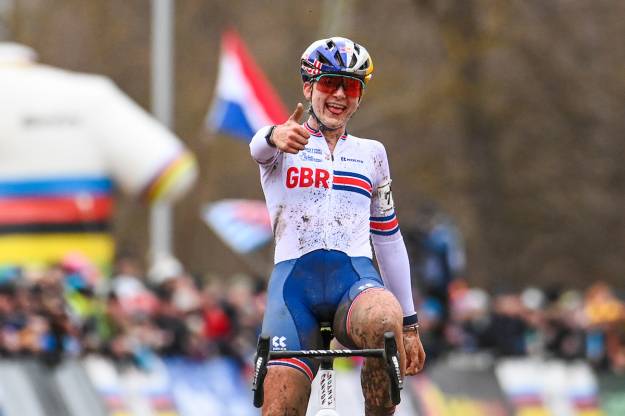![]() Published: 25 April 2012
Published: 25 April 2012
Report: Scott Hobro
Great Britain Cycling Team psychiatrist Dr Steve Peters has explained how the potential pressures of a home Olympic Games can affect riders in different ways.
The possible strain facing all of Team GB’s athletes ahead of the 2012 London Games has been well documented and Peters, who has worked with the Great Britain Cycling Team since 2001, is challenged with ensuring riders go into the summer with the best mindset possible.
Peters, who also works with Team Sky, expects an array of different emotions and responses as the Games near and during the competition itself.
“From an individual perspective you might get someone in which the emotional side of them actually promotes them to do better because it’s a home games and it doesn’t bring on any fear factors," Peters explains. "It actually brings on a feeling for the individual that they have got the whole world coming to see them on home territory and they’re now at an advantage - that person will actually thrive on it.
“But you can find the opposite effect were somebody might think ‘it's home territory - I’m going to let everyone down if I fail and I’m going to look bad in front of a home crowd’. Clearly if someone went in with that approach then they are likely to feel stressed. My remit is to help the rider to establish what approach they are taking to the Games and what they are thinking, define what they feel the best approach to the Games would be and what the ideal thoughts would be, and then make sure that the two agree.
“It’s very individual - I don’t go in and say these are the problems you’ll face, because I don’t think you can do that. As a psychiatrist possibly the most important thing is for me is to tune in and listen to what the athletes are telling me and then go with the athlete rather than me going in with a fixed format and a recipe book and saying ‘this is what we are going to do’ - you’ve got to follow a specific formula.”
With the final competitive track event, April’s world championships, now behind Great Britain’s cyclists as well as the Olympic test events for road, mountain bike and BMX complete, preparation is in the final run-in with a meticulous and methodical approach taken from Peters’ perspective which incorporates every area of a rider’s programme, leaving no stone unturned.
“The coaches have specific plans of action for physical training,” Peters says. “As the psychiatrist I help develop specific psychological plans for the period before the Games. Each period, such as the holding camp, the days in the Olympic village immediately before competition and the day of competition have their own plans depending on the individual.
“We have plans of action for different stages because there are going to be different kinds of thoughts for different people. We work out an optimal individual psychological plan.
“Finally we have a plan for after the competition – clearly you need to deal emotionally with success as well as failure, as emotions can be potentially damaging if you don’t take them into consideration.”
Peters admits that undertaking such a detailed plan requires time and patience – from both himself and the rider – some riders apply the techniques quicker than others, highlighting that it is 'it is a skill to manage your emotions'.
“We work as a team and success depends on how fast someone can learn. Some people tune in very quickly and you get enormous gains very quickly with them. They can see the psychological benefits and activate them, whereas other people’s minds resist and don’t allow them to employ the techniques.
“I wouldn’t like to make out that athletes suffer stress more than others. Clearly there are unique stressors in the world of elite cycling but everyone has stress in some form in any job. It is all down to the individual and what they perceive as stress and this is something that can be changed.”









